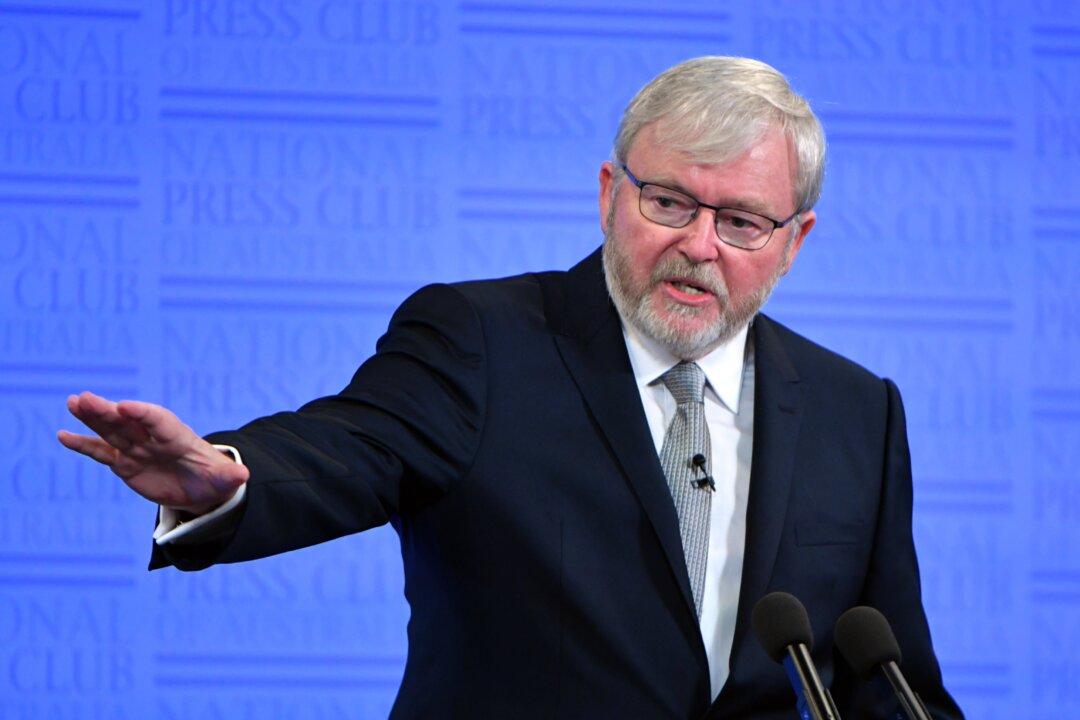Former Australian Prime Minister Kevin Rudd has addressed a trade forum organised by a Chinese propaganda body and state-run media outlet, aimed at encouraging “regional exchange and cooperation” surrounding the Regional Comprehensive Economic Partnership (RCEP).
The appearance comes despite current Australian ministers being frozen out of diplomatic contact with their Chinese counterparts since 2020 amid an ongoing economic coercion campaign being waged by Beijing against Australia.





